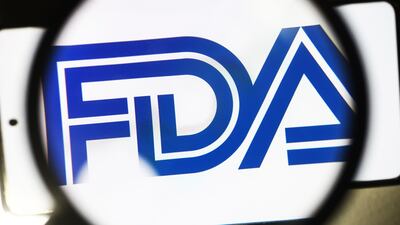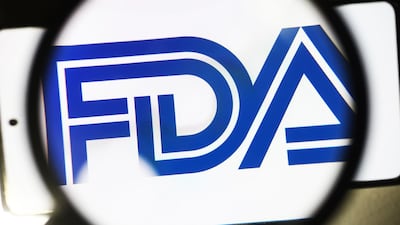
Compliance
“RRAs are valuable oversight tools and under certain circumstances, can assist FDA in its mission to protect public health, oversee regulated industry, and help ensure regulated products comply with FDA requirements,” according to final guidance.
HHS and its agencies violated the law by swiftly implementing “sweeping and poorly thought-through directives that ordered the bulk removal of healthcare resources,” including FDA draft guidances on diversity action plans and sex differences in clinical trials, a federal court said.
Stay current on regulatory guidelines from around the world with Medtech Insight's Guidance Tracker. Over 50 documents have been posted on the tracker since its last update.
Former HHS-OIG attorney Rob DeConti emphasized the significance of data analytics and compliance in combating healthcare fraud, urging medical tech companies to adopt robust measures to prevent potential risks.
Dexcom’s CEO Kevin Sayer discusses this fall’s planned launch of the 15-day G7 CGM, downplays Abbott’s dual-sensor while focusing on development of multi-analyte G8, making OTC Stelo app more “consumerish” for Europeans, and more.
The FDA has released draft guidance clarifying UDI rules for drug- and device-led combination products. The document specifies labeling requirements and makes recommendations to reduce confusion between UDIs and NDCs. Comments are being accepted until Sept. 24.
The DOJ has launched nearly 70 enforcement actions in 2025, targeting diagnostics, durable medical equipment, and telehealth fraud. Key cases involve significant fraudulent claims against Medicare, with individuals facing severe penalties.
After multiple warning letters and safety communications, the US FDA has decided to block the import of certain endoscopes from Olympus. In total, the agency’s action pertains to 58 device models manufactured by the Japanese firm used in urinary, respiratory, abdominal and pelvic procedures.
Now that the US FDA has chosen not to appeal a March ruling effectively killing the agency’s efforts to regulate lab-developed tests as medical devices, will the agency adopt a different strategy to flex its regulatory muscle?
The US FDA recently published a draft guidance document for manufacturers of mesh products that are used during several types of hernia repair procedures.
FDA moves forward with implementing previous draft guidance and will consolidate forms, but the agency estimates limited impact in the total reporting burden.
The US FDA's new draft guidance details the responsibilities of new owners of 510(k) clearances, including making timely updates device listings in FURLS and GUDID to maintain accurate information for safety alerts and recalls. Comments on the draft are accepted until 4 August.
Stay current on regulatory guidelines from around the world with Medtech Insight's Guidance Tracker. Thirty-six documents have been posted on the tracker since its last update.
The US FDA’s device center sent warning letters to three domestic device manufacturers and one German firm for failing to adhere to protocol on several issues.
During MD&M East last week, regulatory consultant Darren Reeves reminded device manufacturers that the time to get ready to comply with the new Quality Management System Regulation is now.
The US FDA says its updated draft guidance represents one of several steps the agency is taking to develop electronic submission templates for the medical device industry. The document introduces stakeholders to currently available resources for supporting their pre-subs to the agency.
During MD&M East in Manhattan last week, a panel of experts discussed how the Trump administration’s trade policy is affecting manufacturing and offered some ideas on what manufacturers can do to help mitigate the chaos.
The FDA has stopped accepting data from two Chinese labs due to accuracy issues. Mid-Link and SDWH have been flagged for potentially falsified results and other misconduct. This decision, which follows months of discussions and warnings, emphasizes the FDA's commitment to ensuring data integrity in medical device submissions.
The UK has issued clearer guidance to help drug and medical device sponsors demonstrate how they intend to include a diverse and relevant range of participants in their clinical trials.
The US FDA recently announced plans to carry out more unannounced inspections of foreign facilities. But those inspections will primarily target drug producers, with less attention and resources allocated to those making devices.

















